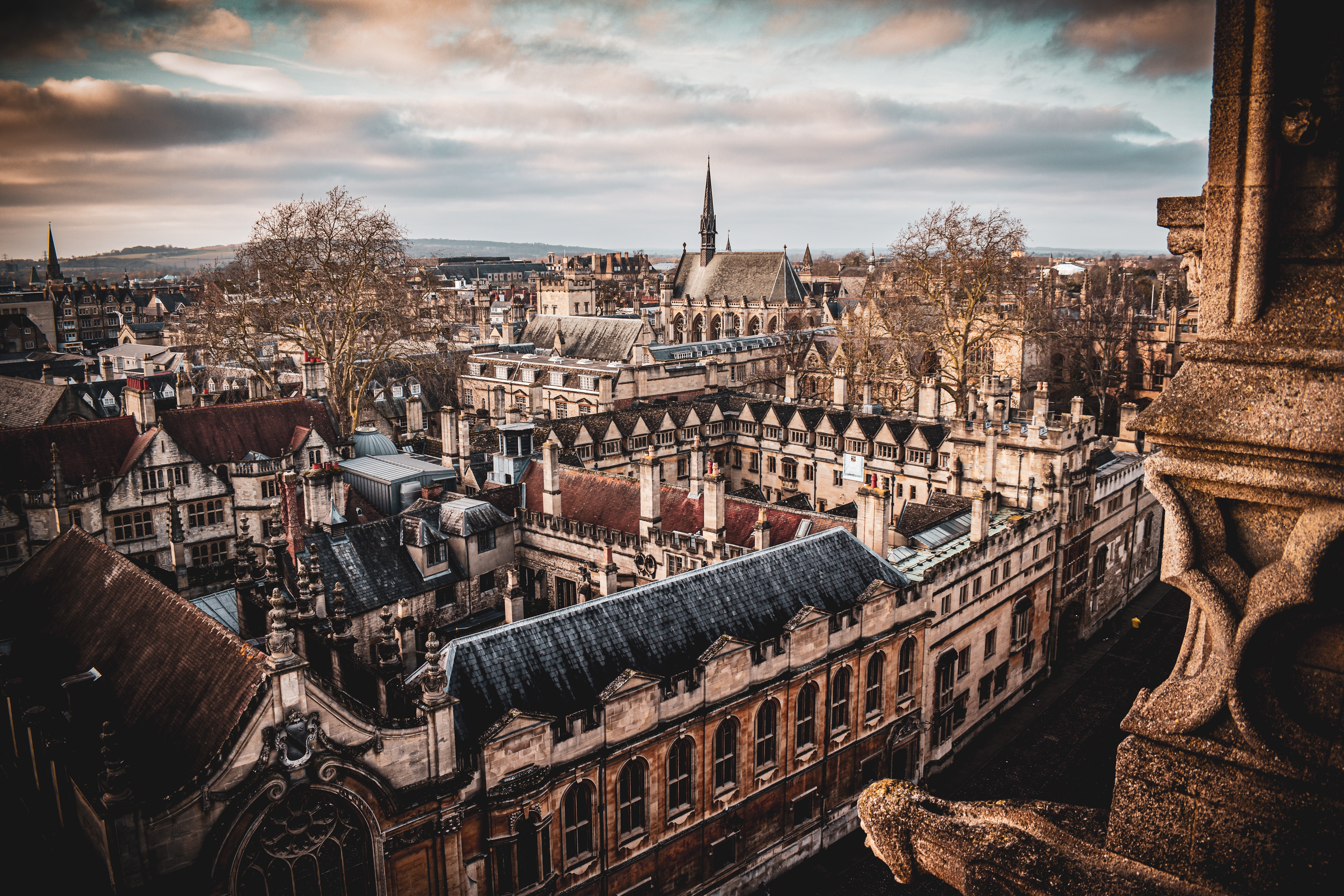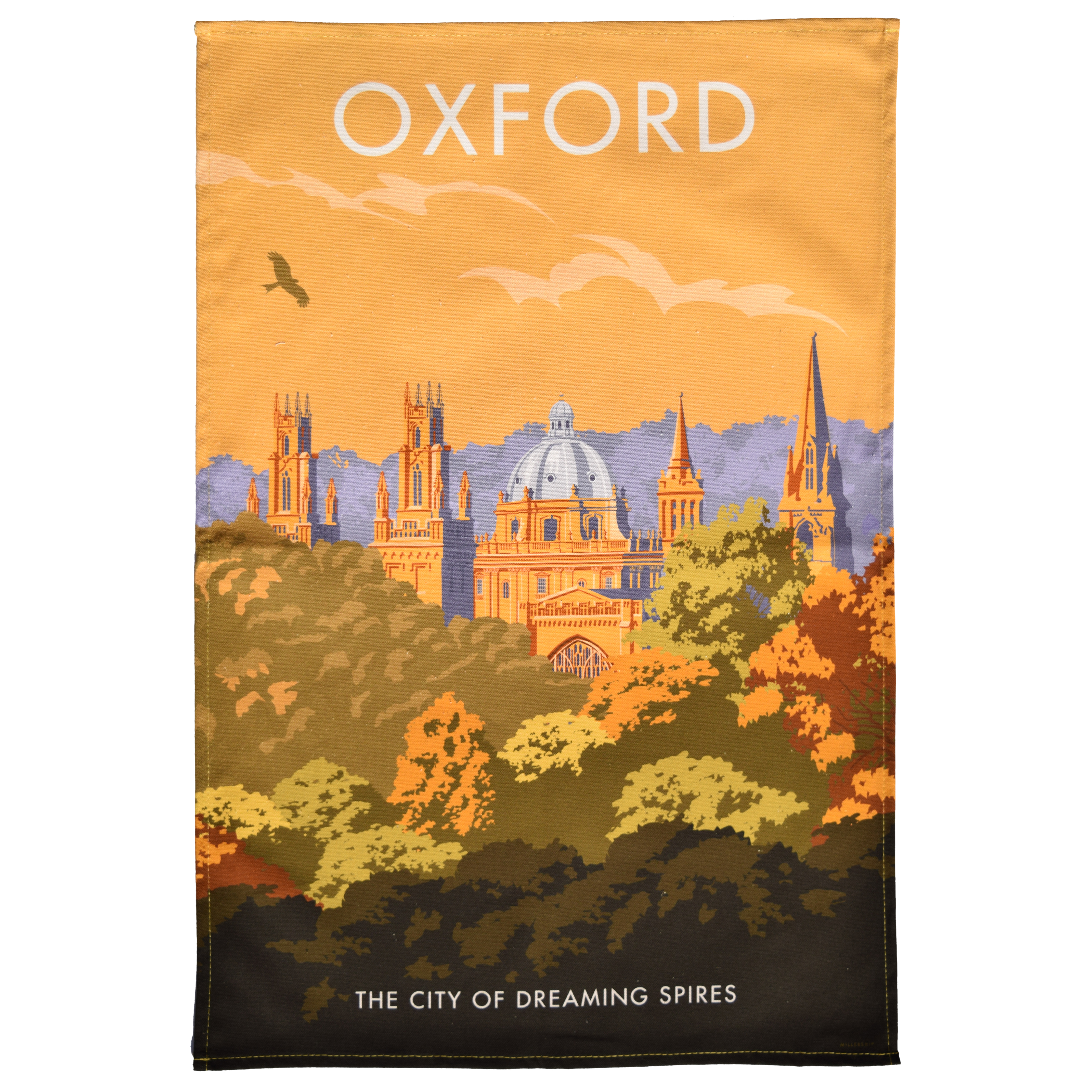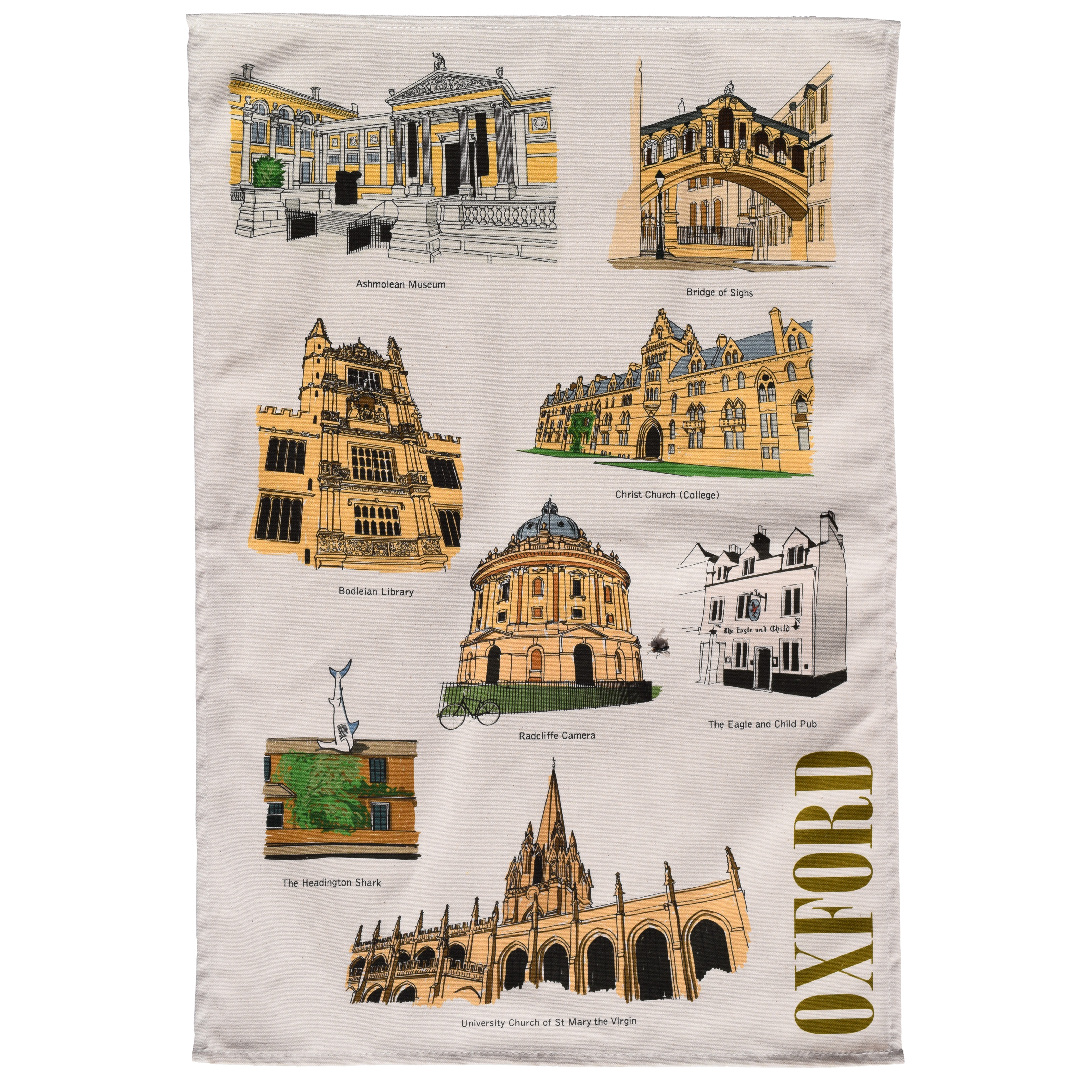Oxford: City of Dreaming Spires
Posted by Pete on 12th Jan 2022

Photo by Liv Cashman on Unsplash
Our historian, Pete, reflects on what Oxford means to him...
"And that sweet city with her dreaming spires,
She needs not June for beauty’s heightening.”
The 19th century poet, Matthew Arnold, spun these tender lines about Oxford in his 1865 poem 'Thyrsis'.
'City of Dreaming Spires' has since stuck as Oxford's favourite nickname.
And it’s not far off the mark as a physical description, either: the Oxford skyline is famous for its spired domes and its tall towers reaching heavenward.
Our Oxford tea towel celebrates the city's beautiful skyline.
Click here to view our Oxford Dreaming Spires tea towel
Many millions of student hours - including my own - have been spent (day)dreaming in the libraries beneath those spires.
I lived and studied in Oxford for three years, the first years I spent away from
my home in Manchester.
Oxford is a peculiar city, its streets hallowed with a certain medieval air – a world removed from the old smokestacks, warehouses, and mills which still decorate the North of England.
Take a stroll around Oxford in any direction and you’re likely to stumble upon a 12th century church or a 14th century college.
In the middle of Oxford, 10 minutes from the train station, are the remnants of the castle built by invading Normans during the 11th century.
Cornmarket Street, still a bustling lane of shops and street performers, is guarded by the church of St Michael at the North Gate, whose Saxon tower is the oldest building in the city.
And on Broad Street – a road I know all too well as the route to Tesco – is a plaque dedicated to the ‘Oxford Martyrs’, burned at the stake for their Protestant beliefs in 1556.
Our Oxford Landmarks tea towel features some of the city's most famous architectural wonders, from the Radcliffe Camera to the Bodleian Library.
Click to view our Oxford Landmarks tea towel
But there’s more to Oxford than the monuments and cobwebs of a well-known past.
It’s a living city, where history continues to be made every day.
Most notably in recent times, it was university researchers in Oxford who developed one of the first COVID-19 vaccinations, helping to immunise millions of people across the world.
But there are also the smaller histories, which are often the most meaningful: the friendships made, the times enjoyed, and the lifelong passions discovered.
More than the illustrious figures of its past, what makes Oxford special to me are the memories I made there: the biting cold mornings playing football up in Summertown, or the late-night trips to kebab vans on Gloucester Green – the only thing that made the tired hours in the library bearable.
But I guess that’s often how it is when you really get to know a place.
Whatever its value to the world or the country, its real value lies in the seemingly menial – and yet beloved – everyday.


